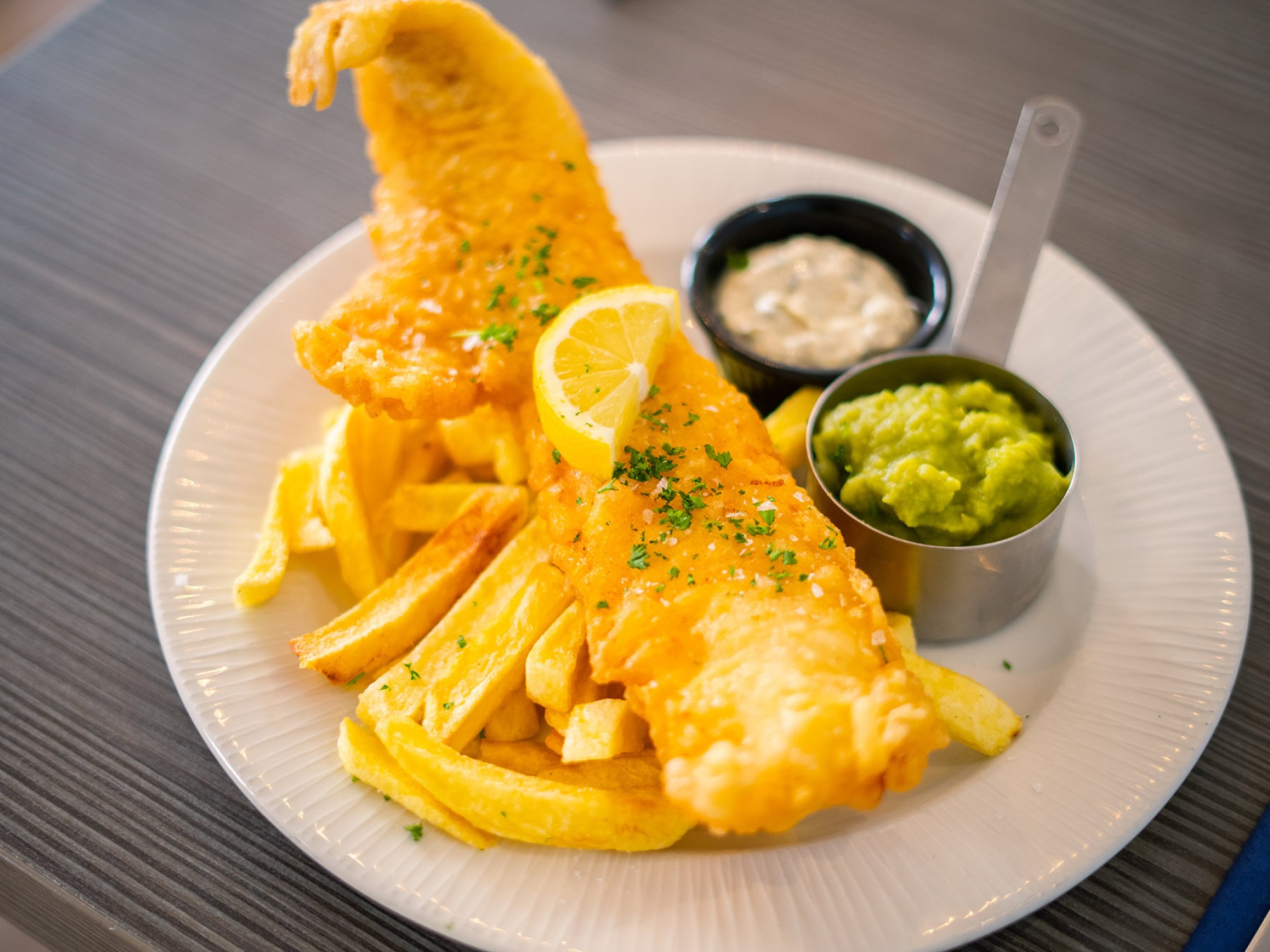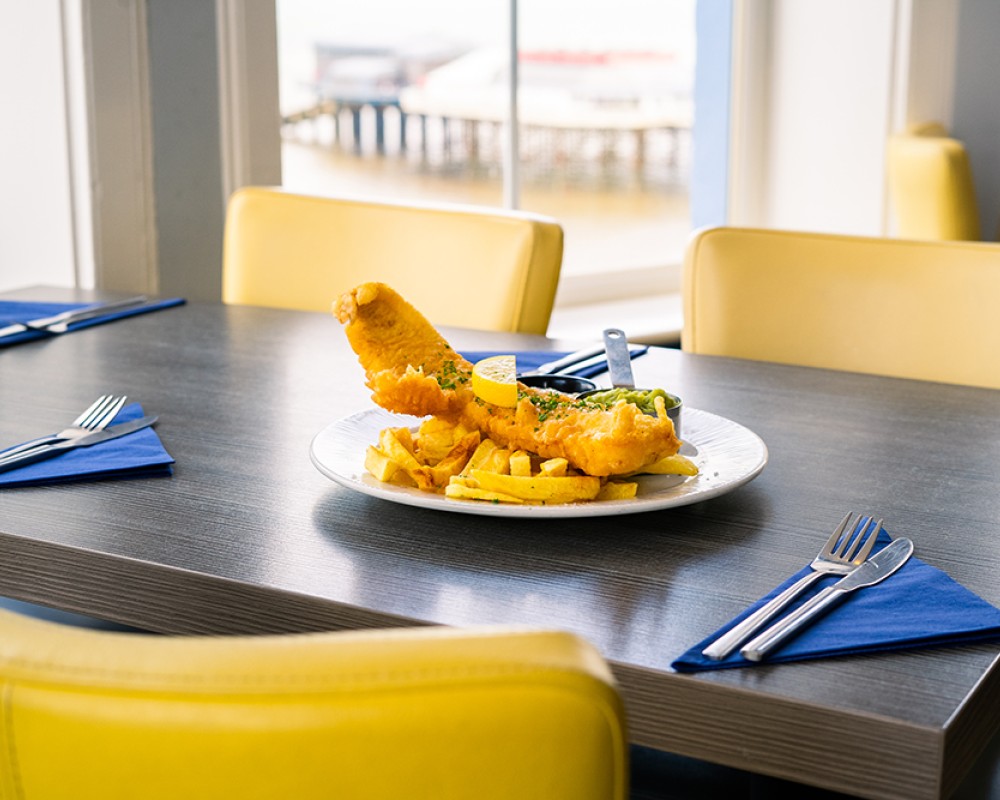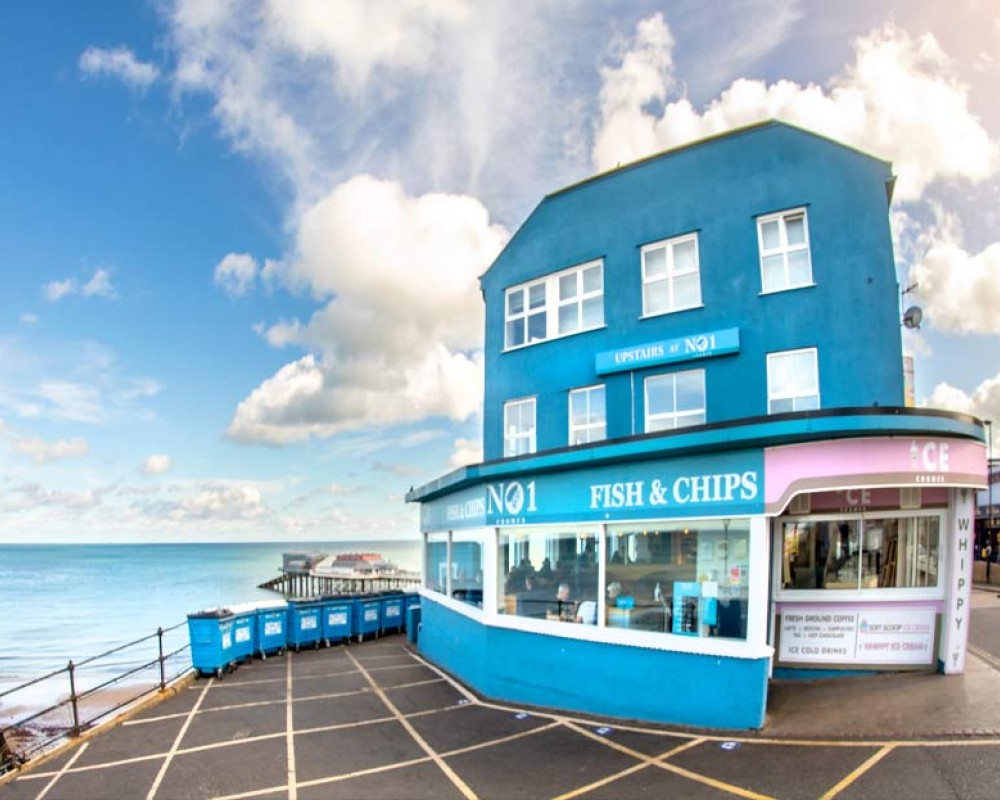
Perfecting the nation’s favourite summer feast
An iconic combination, fish & chips has become a traditional symbol of our country’s culinary culture - and Michelin star chef Galton Blackiston has some excellent tips on creating the perfect portion
Since the two ideas are almost exactly the same age, it’s only natural that the combination of a trip to the seaside and a meal of fish and chips should have grown to become such an iconic part of British culture. According to the National Federation of Fish Friers, over 80% of us visit a fish and chip shop at least once a year (nearly a quarter of us on a weekly basis) and the staggering annual sales figure of 382 million meals means that every single man, woman and child in the country enjoys six servings a year.
At heart, it seems rather odd and deceptively simple - deep-frying sliced potatoes and fish covered in a mixture of white flour, beer, baking soda and salt - but a trip to Cromer on the north Norfolk coast will soon prove that there’s nothing odd or simple about the very best fish and chips.
Offering some of most spectacular views in East Anglia from its lofty position overlooking the seafront is No.1 Cromer, which serves fish and chips of a quality that are as memorable as the picture-perfect location.
Which should come as no surprise since it’s owned by renowned local chef Galton Blackiston, who’s held a Michelin Star at his multi award-winning Morston Hall hotel and restaurant for almost 25 years, is a regular guest on some of the country’s most popular cookery programmes, and is one of the four finalists for the AA’s Chefs’ Chef Award in September.
As you might imagine, for Galton there’s nothing ordinary about fish and chips.
“Fish and chips is a truly delightful treat, especially at the Norfolk coast, and I’ve learnt a great deal since opening No.1 back in 2013,” he says. “The most important thing to think about is the quality of your ingredients. That’s where it starts, and that’s what makes all the difference.”
Since the kitchen at No.1 will easily work its way through seven tonnes of potatoes a week in the height of summer, it seems only natural to start with the chips and the secret of achieving that perfectly crisp and golden finish.
“You have to choose the right type of potato, and you’ll ideally want a variety with a low sugar content to prevent them going too brown,” says Galton. “The starch content of different varieties changes throughout the year, so we try to get the best for the season in question. Maris Pipers are always excellent potatoes to use for chips as they’re floury and firm, and they tend to fry up really well.”
To achieve the perfect chips with a crispy outside and a fluffy centre, Galton says that blanching the potatoes is essential.
“Blanch them until they’re almost cooked, drain them and then fry them again,” he says. “It’s a very easy step, but it makes the world of difference. And I can’t stress how important it is to use the freshest and most sustainable ingredients you can - I’m a passionate supporter of local produce, and all the potatoes and rapeseed oil we use comes from fields in East Anglia.”
As for the fish, that presents Galton with something of a problem since the sheer scale of No.1 (which can serve up to 2,000 meals a day) means local waters simply can’t cope with the demand - so he does the next best thing.

Galton recommends taking a thick cut of skinless and boneless cod, dusting it with flour, coating in batter (he’s understandably reluctant to share his favourite recipe) and frying it at 170°C to achieve a satisfyingly-golden colour and a deliciously-crisp texture.



“We have a boat assigned to us in Norway and the quality of the catch there is truly stunning,” he says. “The fish is filleted, skinned, gutted and frozen at sea so it stays wonderful and fresh. It might not be the cheapest option, but it’s certainly the best, and I’ve always put a strong emphasis on quality.”
Galton recommends taking a thick cut of skinless and boneless cod, dusting it with flour, coating in batter (he’s understandably reluctant to share his favourite recipe) and frying it at 170°C to achieve a satisfyingly-golden colour and a deliciously-crisp texture.
“It’s not rocket science, but there’s certainly a knack to creating the perfect portion of fish and chips,” he says, “and once you’ve mastered it the results will be incredible every time.”
But where did this quintessentially British dish come from? The answer is that it didn’t come from Britain at all.
Battered and fried fish came to the country via Jewish immigrants from Portugal and Spain in the 17th century, almost certainly because it tasted just as good on the following day - so it could be prepared on Friday and avoid the religious restrictions of cooking on a Saturday.
Similarly the humble chip also came to us from Europe in the 19th century, where the French and Belgians still argue about who invented them.
Arguably the first fish and chip shop in the world was opened by the Jewish immigrant Joseph Malins in London in 1860, but almost 25 years before that in his novel Oliver Twist Charles Dickens had talked about a “fried fish warehouse” that served the fish with bread or baked potatoes.
A staple of working-class diets throughout the 19th century and one of the very few ration-proof foods during the Second World War, fish and chips became so ingrained in the national consciousness that Winston Churchill described them as “the good companions.”
At a time of rising concerns about nutrition and healthy eating, it’s reassuring to learn that a portion of fish and chips provides a third of the recommended daily allowance of vitamins for a man (nearly half for a woman) and contains only 7.3% fat of which a mere 2.8% is saturated fat.
Which is all well and good, but how should we really be enjoying them?
“Personally, I’ve always felt that fish and chips should be accompanied by homemade tartare sauce, be lightly seasoned with salt and enjoyed whilst sitting watching the sea,” says Galton. “There’s really nothing quite like it.”
And with Norfolk having some of the very best fish and chip shops in the entire country, it’s hard to disagree with one of its most ardent supporters.
